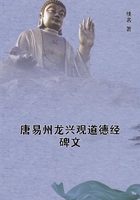His immense influence was based on his learning and sanctity; but he was dogmatic and intolerant. It is probable that the intellectual arrogance of Abelard, his flippancy and his sarcasms, offended more than the matter of his lectures. "It is not by industry," said he, "that I have reached the heights of philosophy, but by force of genius." He was more admired by young and worldly men than by old men. He was the admiration of women, for he was poet as well as philosopher. His love-songs were scattered over Europe. With a proud and aristocratic bearing, severe yet negligent dress, beautiful and noble figure, musical and electrical voice, added to the impression he made by his wit and dialectical power, no man ever commanded greater admiration from those who listened to him. But he excited envy as well as admiration, and was probably misrepresented by his opponents. Like all strong and original characters, he had bitter enemies as well as admiring friends; and these enemies exaggerated his failings and his heretical opinions. Therefore he was summoned before the Council of Soissons, and condemned to perpetual silence. From this he appealed to Rome, and Rome sided with his enemies. He found a retreat, after his condemnation, in the abbey of Cluny, and died in the arms of his friend Peter the Venerable, the most benignant ecclesiastic of the century, who venerated his genius and defended his orthodoxy, and whose influence procured him absolution from the Pope.
But whatever were the faults of Abelard; however selfish he was in his treatment of Heloise, or proud and provoking to adversaries, or even heretical in many of his doctrines, especially in reference to faith, which he is accused of undermining, although he accepted in the main the received doctrines of the Church, certainly in his latter days, when he was broken and penitent (for no great man ever suffered more humiliating misfortunes),--one thing is clear, that he gave a stimulus to philosophical inquiries, and awakened a desire of knowledge, and gave dignity to human reason, beyond any man in the Middle Ages.
The dialectical and controversial spirit awakened by Abelard led to such a variety of opinions among the inquiring young men who assembled in Paris at the various schools, some of which were regarded as rationalistic in their tendency, or at least a departure from the patristic standard, that Peter Lombard, Bishop of Paris, collected in four books the various sayings of the Fathers concerning theological dogmas. He was also influenced to make this exposition by the "Sic et Non" of Abelard, which tended to unsettle belief. This famous manual, called the "Book of Sentences," appeared about the middle of the twelfth century, and had an immense influence. It was the great text-book of the theological schools.
About the time this book appeared the works of Aristotle were introduced to the attention of students, translated into Latin from the Saracenic language. Aristotle had already been commented upon by Arabian scholars in Spain,--among whom Averroes, a physician and mathematician of Cordova, was the most distinguished,--who regarded the Greek philosopher as the founder of scientific knowledge. His works were translated from the Greek into the Arabic in the early part of the ninth century.
The introduction of Aristotle led to an extension of philosophical studies. From the time of Charlemagne only grammar and elementary logic and dogmatic theology had been taught, but Abelard introduced dialectics into theology. A more complete method was required than that which the existing schools furnished, and this was supplied by the dialectics of Aristotle. He became, therefore, at the close of the twelfth century, an acknowledged authority, and his method was adopted to support the dogmas of the Church.
Meanwhile the press of students at Paris, collected into various schools,--the chief of which were the theological school of Notre Dame, and the school of logic at Mount Genevieve, where Abelard had lectured,--demanded a new organization. The teachers and pupils of these schools then formed a corporation called a university (Universitas magistrorum et Scholarium), under the control of the chancellor and chapter of Notre Dame, whose corporate existence was secured from Innocent III. a few years afterwards.
Thus arose the University of Paris at the close of the twelfth century, or about the beginning of the thirteenth, soon followed in different parts of Europe by other universities, the most distinguished of which were those of Oxford, Bologna, Padua, and Salamanca. But that of Paris took the lead, this city being the intellectual centre of Europe even at that early day. Thither flocked young men from Germany, England, and Italy, as well as from all parts of France, to the number of twenty-five or thirty thousand. These students were a motley crowd: some of them were half-starved youth, with tattered, clothes, living in garrets and unhealthy cells; others again were rich and noble,--but all were eager for knowledge. They came to Paris as pilgrims flocked to Jerusalem, being drawn by the fame of the lecturers. The quiet old schools of the convents were deserted, for who would go to Fulda or York or Citeaux, when such men as Abelard, Albert, and Victor were dazzling enthusiastic youth by their brilliant disputations? These young men also seem to have been noisy, turbulent, and dissipated for the most part, "filling the streets with their brawls and the taverns with the fumes of liquor. There was no such thing as discipline among them. They yelled and shouted and brandished daggers, fought the townspeople, and were free with their knocks and blows." They were not all youth; many of them were men in middle life, with wives and children. At that time no one finished his education at twenty-one; some remained scholars until the age of thirty-five.















